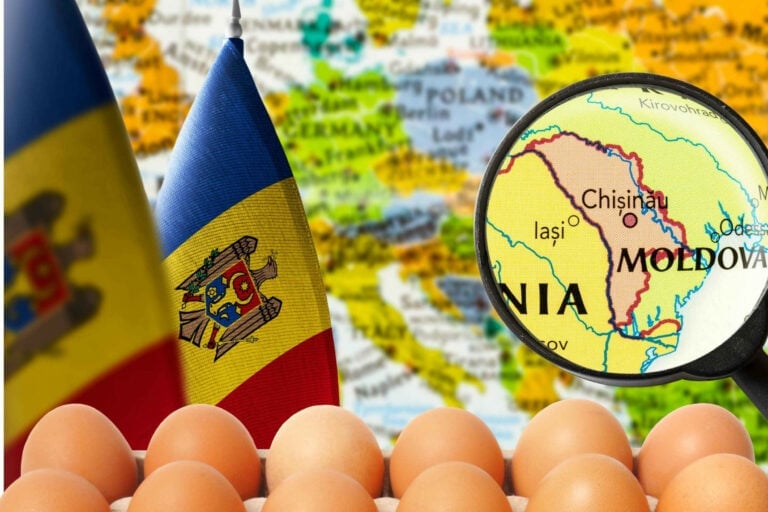October 30, 2025 | 16:17 GMT +7
October 30, 2025 | 16:17 GMT +7
Hotline: 0913.378.918
October 30, 2025 | 16:17 GMT +7
Hotline: 0913.378.918

Moldova has come close to self-sufficiency in egg production. During the first 6 months of the year, the country imported only 868,000 eggs, against 18.3 million in 2022. Photo: Canva.
The data was revealed during the visit of Moldovan prime minister Dorin Recean to an egg farm operated by Axedum, the country’s largest egg producer and exporter. The farm is the first and only poultry farm in Moldova that produces free-range eggs under the European standards, according to the Moldovan government.
The Axedum farm’s capacity is 980,000 eggs per month, nearly 80% of which is exported to the European markets. Moldova was granted the right to export eggs to the EU in 2023, following extensive negotiations that took several years.
The European Bank for Reconstruction and Development (EBRD) and Moldovan bank Maib have struck an agreement to support Axedum’s expansion, EBRD said in a statement on 15 August. The EBRD is sharing half the risk on a €9 million financing package provided to Axendum by Maib, under the risk-sharing agreement between the banks.
The transaction will finance the construction of a modern feed mill and enable Axedum to expand into a new business line of egg production, EBRD stated.
As part of the deal, Axedum will receive support from the European Union to modernise its equipment and implement environmentally sustainable technologies. This will improve the operational efficiency of the enterprise by reducing carbon emissions, minimising waste and optimising the use of resources.
The Moldovan government is also allocating money to support Axedum’s growth. Prime Minister Recean said the country’s budget will cover nearly half of the investments necessary for the construction of the feed mills, estimated at MDL180 million (€9.1 million).
The government stated that the project aims to ensure the quality and safety of animal feed and reduce the risk of disease.
A substantial rise in Moldova’s egg production in recent years is reflected both in international trade and the balance on the domestic market. Egg exports to non-EU countries reached 12.2 million in the first half of 2025, nearly double the figure from 2022, the government said.
Moldova has come close to self-sufficiency in egg production. During the first 6 months of the year, the country imported only 868,000 eggs, against 18.3 million in 2022.
(Poultryworld)

(VAN) Viet Nam mainly exports raw Bat Do bamboo shoots for deep processing, so premium products appear only on dining tables in Japan and Taiwan.

(VAN) Tafa Group CEO emphasized, 'It is essential to strengthen communication efforts so that 'Made in Vietnam’ egg brand not only maintains a strong foothold domestically but also reaches into export markets.'

(VAN) Building on its leading position, Ho Chi Minh City drives a green, digital, and creative wood industry toward global reach and its goal of joining the world’s top 100 most livable cities by 2045.
/2025/10/25/0325-1-nongnghiep-130321.jpg)
(VAN) The 2024–2025 crop year of Viet Nam's coffee industry has ended with record export turnover of USD 8.4 billion. Since the beginning of this year, exports have already surpassed USD 7 billion.

(VAN) Vietnam and Chile are seeing opportunities to deepen their agricultural cooperation, especially as both share a common vision of sustainable development and trade integration.

(VAN) Strong export growth across industries drives Phu Tho’s economic breakthrough and contributes to achieving overall growth goals.

(VAN) During the first 7 months of 2025, Russia boosted its share of Chinese poultry imports to a record 18%, up from 14% the previous year.